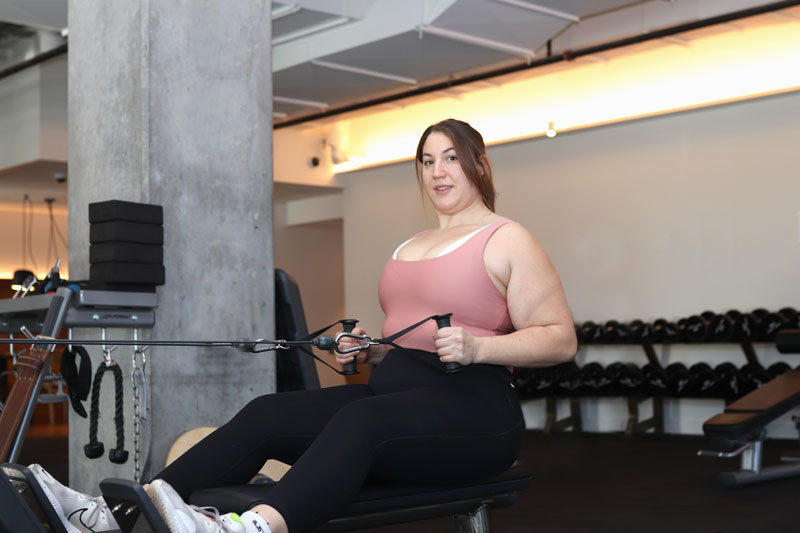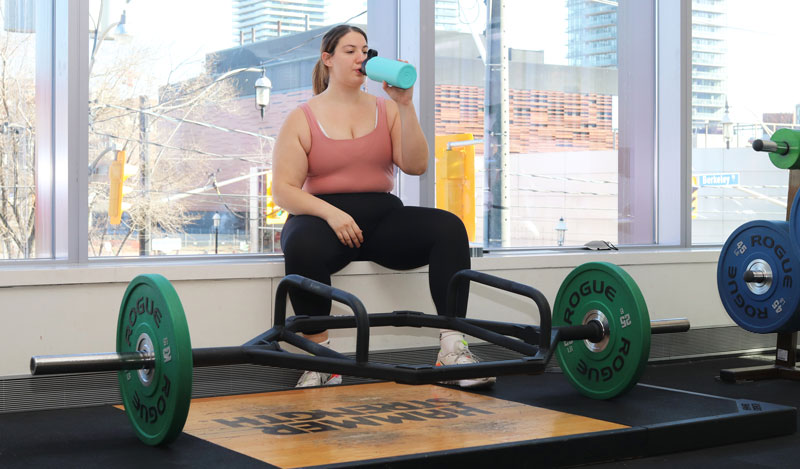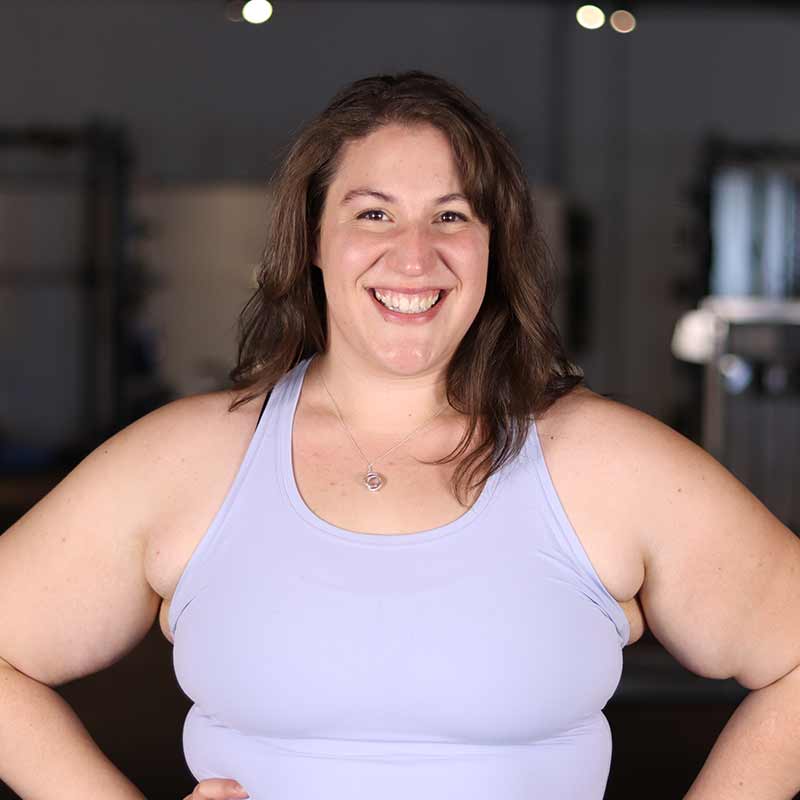Personal Trainer
Many people start their fitness journey with weight loss goals. As a trainer, I want to design a program that will help them achieve their goals while helping them appreciate their bodies and capabilities.
If you want to lose weight in a healthy, sustainable way this blog post is for you. I’ll explain how to set a sustainable weight loss goal that appreciates your body’s abilities while making a caring effort to change.
The Importance of Goal Setting
Before we dive into the elements of a sustainable goal, you must understand the importance of goal setting. Setting goals at the beginning of your journey helps you:
- Define what success looks like
- Identify the steps you need to take to succeed
- Contextualize your progress so that you can celebrate small wins
Even if you’re not concerned with the number on the scale, specific, measurable, and realistic goals are crucial in helping you make long-term lifestyle changes. When you set a great goal, you’ll feel confident and empowered.
Ready to set your own goals? Sign up for free goal-setting consultation with a trainer like Emma.
Specific Goals Define Success
General goals may feel safer for you than specific goals. However, goals that are too wide in scope are more difficult to achieve.
Specific goals define success. When you know what success means for you, it’s easier to develop a plan and pave the way to achievement. To set a specific and sustainable weight loss goal, focus on answering the following questions:
- What do I want to achieve?
- When do I want to achieve my goal?
- Where will I work towards achieving my goal?

For example, your body composition goal might be, “I want to lose one inch from my waist in two months.” To make this goal even more specific, you can add your plan to achieve that goal. Your goal becomes, “I will lose one inch from my waist in two months by training three times per week and eating balanced meals.”
Measure Your Success
With your specific goal, it’s time to decide how you’ll measure success. In the previous example, we chose inches as the measurement for success.
However, numbers related to weight can be understandably stressful. If that’s you, there are ways to create measurable goals without a scale or a measuring tape.
To set a measurable goal that helps you appreciate the way your body moves and improves, you can focus on performance goals. Choose movements you like doing or need to do daily. For example, you may set a performance goal to gain upper body strength. Your specific and measurable goal would be, “I will increase my pushups by five repetitions in one month.”
You’ll know if your goal is measurable if you can answer the following questions:
- How many? How much? How long?
- How will I know if I’m progressing?
Another way to make a goal measurable is to use physical cues that you’ve lost weight. Choose a piece of clothing that you would like to be able to wear again. My advice is to choose something meaningful. Be sure to consider whether it’s possible to fit in again within the time you’ve set out for yourself.
Make It Realistic
Setting realistic yet challenging goals can transform your confidence. When your goals are realistic, you are more likely to feel confident in your capability. When those realistic goals are challenging, you’ll feel more accomplished with each small win and be motivated to continue.
Remember to consider your context when setting realistic goals. Identify what aspects of your lifestyle can reasonably change to make consistency possible. Be sure to make time for rest in addition to your new movement and eating habits.
You’ll know if your goals are realistic if:
- You can maintain the required changes within your current lifestyle.
- You can achieve your goals within the timeframe you’ve given yourself.

Celebrate Small Wins
Setting specific, measurable, and realistic goals sets you up for success. In my experience as a personal trainer, the key to feeling motivated is giving yourself many opportunities to feel accomplished.
Start by breaking down your long-term goal into short-term goals. Base your small goals on building healthy habits. For example, you may have reduced energy and headaches, making it challenging to move often and choose healthy foods. These are often the effects of dehydration. If this sounds like you, make your first goal to drink enough water consistently. (You can find out how to stay hydrated in our Hydration series on our Healthy Living Library).
Remember, your short-term goals should be specific, measurable and realistic – just like your long-term goal.
Conclusion
Empowered with specific, measurable and realistic goals, you are ready to start your journey to a happier, healthier, and more active version of yourself. Remember to celebrate your wins and that health isn’t a number. Focus on finding daily movement that brings you joy and eating nutrient-dense foods you truly want.
Begin Your Journey with Us
If you’re finding it challenging to get started on your journey, feel free to reach out to us for a complimentary consultation. We would be more than happy to offer some guidance to help you move forward. Sometimes taking the first step is the hardest, so don’t hesitate to get some help to kickstart the process. We all start somewhere.

